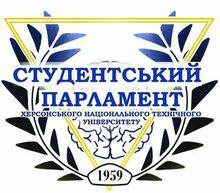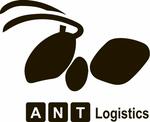|
Network Resources / Electronic library / Періодичні видання ХНТУ / Соціально-економічний розвиток регіонів в контексті міжнародної інтеграції (архів) / Статті іноземними мовами / Choice of methods of the assessment of efficiency of administrative activity - the basis of research of regularities of economic growth |
Choice of methods of the assessment of efficiency of administrative activity - the basis of research of regularities of economic growth
Created 17.06.2013 07:01
A.V. Rudkovsky
Khmelnytsky cooperative
trade and economic institute
Annotation. This article deals with the problem of evaluating the effectiveness management.
Keywords: planning, development, prognostication, systematization of processes.
Relevance of a subject of research and problem statement. Management in a broad sense is the effective organization of use of all types of resources, namely: human, material, financial, power, information goals for achievement. Usually for functioning of an organizational production system necessary expenses. To them as economic category, join efficiency of their use. Organizational appear as administrative as the market actually and dictates a combination of requirements of necessary centralization or decentralization which, in turn, are based on delegation as distribution of powers of the parties - participants of administrative activity as interactions.
Consideration of the main economic categories through a prism of management allows to reveal the main problems as management, and economy as a whole. And allocating and studying the basic principles, functions and methods of administrative activity, it is necessary to investigate more densely them as an economic problem.
Analysis of the last researches and publications. Questions of an assessment of effective management of the enterprise дослижувалось in I.Ansoff, P. Drukker, M.Portera, M. Doronina, A.Galchinsky, F.Kotler, A.Grinev, V. Grineva, S. Ilyashenko, A.Pushkarya, T.Nazarov's works. However, a question of research of an assessment of effective management of the enterprise remain debatable. Relevance of certain problems defined a choice of a subject, a task and a research objective.
Research objective is definition of criteria of an assessment of management efficiency.
Result of research. Criteria of an assessment of efficiency of administrative activity is rather difficult category as their formation depends on rather wide range of indicators: a) production, b) social activity, c) economic development as a whole. N.N.Gromov [1], analyzing approaches of a number of researchers according to efficiency of administrative activity, allocates three types of criteria:
1) The administrative personnel of the enterprise is considered as the cumulative public worker, directly influences production. The main indicator here are the end results (enterprise profit, expenses, prime cost, profitability level, products volume, etc.).
However, according to the author, these indicators are supplemented with other factors: means of labor, objects of the labor, production technologies, etc. therefore influence of administrative activity on the end results becomes ephemeral.
2) Efficiency of administrative activity is defined on labor participation (labor productivity and rates of its growth, a salary and its specific weight in product cost, etc.).
Such approach, in our opinion, is more exact, however it masks as well as level of the organization of management, and social activity as a whole.
3) Efficiency of administrative activity is defined by the organization and motivation of work, defines so-called social and psychological climate in collective. Here important criteria become: turnover of staff, level of its qualification, labor and performing discipline [2, 5, 4, 8].
As we see, purely economic indicators of an assessment of efficiency of administrative activity become ineffective. For our research that the assessment of efficiency of administrative activity has an integrated approach is important. If to allocate indicators cost and natural, it isn't enough of them for the analysis of efficiency of administrative activity as it has no naturally material form.
The mathematical model is reduced to need of association of three variable expenses, the purposes and requirements, the author successfully and is defined as "profitability", "productivity" and "expediency".
It is clear that for determination of economic efficiency of the purpose and requirement become purely descriptive categories, without having as productive basis for determination of efficiency of administrative activity.
Administrative activity starts being qualified in terms of social, social and economic and social and psychological efficiency, in modern conditions is formed as safety of society, unlike economic safety.
And as a result: in practice efficiency of administrative activity starts being defined analytical or expert by ways on the basis of rather wide list of indicators, i.e. such which are covered by three approaches investigated by us, and from here and idea of an integrated approach more often. Thus, efficiency of administrative activity becomes that indicator of management covering all spheres of life, influencing and defining economic efficiency as a whole.
Similar positions, but on the basis of other methodological approach, the author of work [9] adheres. Often problems of efficiency of activity of the enterprises are connected not so much with objective economic conditions of managing, how many with effective management of the enterprise. The author fixes not so much a problem of efficiency of administrative activity, how many a social and economic problem. Modern heads of the enterprises don't consider it expedient to estimate management efficiency (18% of respondents), 46% - understand need of an assessment of effective management of the enterprise, but it don't carry out.
At the same time the author notes, such situation is caused by that there is no clear idea of procedure of an assessment. In other words, misunderstanding of value of use of results, deficiency of time, resources and performers for carrying out such assessment become the main reason. And only 36% of respondents recognized positive result of carrying out an assessment of management efficiency as the enterprise.
Very essential there is a problem викорисання methods of an assessment, their choice and application. So, a method of an assessment of administrative activity on the basis of production efficiency prefer all 100% of respondents. The method of an assessment of management efficiency on the basis of economic efficiency, is used for 75% of the enterprises which carry out management efficiency estimates. The method of an assessment of management efficiency on the basis of efficiency of expenses for management is used for 50% of the interrogated enterprises. The method of an assessment of management efficiency on the basis of administrative work is actually applied only for 25% of the enterprises which carry out management efficiency estimates.
But, as it was noted if only 36% of respondents recognize need of methods of an assessment of administrative activity, 64% -it, generally a sign of absence of modern administrative culture. At the same time assessment methods on the basis of production and economic efficiency, and also methods on the basis of administrative work and efficiency of expenses for management correspond to identical indicators.
The logical scheme of indicators which are possible at a combination of these two groups of methods, is that:
1) indicators of methods of an assessment of management efficiency behind production efficiency and economic efficiency,
2) indicators of methods of an assessment of management efficiency on the basis of efficiency of expenses for management and efficiency of administrative work.
As a whole, solving administrative and personnel problems, defining economic efficiency as efficiency of administrative activity becomes each time more and more a problem. So, effect of influence of personnel programs on results of activity of the enterprise, expenses on training of one worker, costs of one accepted worker, labor productivity of the administrative personnel, cost of a unit of labor, production volume for 1 UAH of expenses for labor, quantitative completeness of personnel structure, qualitative completeness of personnel structure, have basic value. Besides, satisfaction with work at this enterprise, satisfaction with the organization of divisions of human resource management, level of operational injuries and occupational diseases, turnover of staff, effectiveness ratio, labor input of management, average number of the administrative personnel, fund of working hours of one worker of the personnel of management, a wages fund of the administrative personnel (one thousand. UAH) an average annual salary of one employee of management (UAH), reduction of loss of working hours of the personnel of management for day (h), average annual damage (from turnover of staff), costs of materials for needs of management (one thousand UAH), expenses on acquisition of administrative equipment (one thousand UAH), expenses on NIR, development of actions for improvement of work of management (one thousand UAH) - still incomplete list of indicators which are essential to the place and role analysis управленческо activity.
A large number of indicators forces to look for both new methods, and new methodical approaches to their use. Management efficiency starts growing in a modern economic paradigm significantly. The essence of many indicators, their place and role in economic process changes. The same time, allocating quantitative and quality indicators, in their combination, the economy becomes, in our opinion, safety as the states, and societies as a whole. The last already is understood and as welfare, as confidence in tomorrow.
Applied complexity, unlike the social and social and economic block of indicators, algorithmic structure of indicators, their calculations as calculation and becomes a criterion, the proof of efficiency of administrative activity is. In other words, only then we receive an assessment of efficiency of administrative activity which, in turn, is based on management efficiency, production efficiency and economic efficiency.
The modern economic situation is shown in a basic change stavlennya both to indicators, and to algorithmic structures of the analysis of all directions of economic economic activity. At the same time change induces new measurement as application, and understanding. Thus, at an assessment of effective management of the enterprise it is necessary to recognize division of indicators expedient, namely: indicators of methods of an assessment of management efficiency behind production efficiency and economic efficiency, on the one hand, and indicators of methods of an assessment of management efficiency on the basis of efficiency of expenses for management and efficiency of administrative work, - with another.
As for an essence of indicators, the scale of their assessment too has to be exposed to the analysis: a) from discrepancy of an indicator to expressive degrees of effective management of the enterprise, b) from a biased assessment to definition of degree of objectivity / management efficiency by the enterprise, c) from casual indicator application in its essential necessary signs, d) from algorithmic complexity of information received on the basis of an indicator, to the accuracy and definiteness in predictive and its recommendatory opportunities, e) from incomprehensibility to the clearness and clarity.
Thus the quantitative analysis has to be supplemented surely with the qualitative analysis which, in fact, and is a pragmatic basis of economic calculations. The conducted research proves need of other positions: various forms of ownership dictate excellent conditions in application of indicators of methods of an assessment of efficiency both economic, and administrative. Existence of the approaches revealed by us we find at a number of researchers both domestic, and foreign [10]. So, authors mentioned by us talk about adoption of administrative decisions and their set. Other authors investigate administrative efficiency through a prism of the economic and financial analysis [4]. In work [8] author allocates the following two approaches, as situational and financial and analytical.
It is necessary to pay attention to a special position which considers the two first approach, but allocates that aspect which contacts safety of society. So, in works [7, 8, 10] consider an economic assessment of management efficiency not only from a position of expediency of decision-making, but also taking into account needs of the region, infrastructure, requirements of society as a whole. Such approach is considered as adjoining on an assessment, and the analysis.
For example, authors of works [6, 3] treat an assessment and the analysis as the isolated processes in space and time, and the others - as such where the assessment is a preparatory stage for adoption of the administrative decision, pulling together such an assessment with economic "diagnosis" of the enterprise. The assessment conducts to determination of advantages or shortcomings, possibility of comparison of various options, i.e. the assessment, in our opinion, becomes strategic, then economic efficiency - concrete [4].
It is expedient to pay attention that in work [5] assessment is considered as set of all methods of management (an exchange, the analysis, forecasting, planning, control and regulation) that is new qualitative level, corresponds to development of economic thinking. Such approach, in fact, does an assessment by the general concept, the analysis - specific concept. Differently, in our opinion, the analysis is carried out for possibility of an assessment, but not on the contrary.
Such approach can consider an assessment as basic category for the analitiko-financial analysis as the assessment already contains the analysis in itself as part of the contents. From such positions positions of other authors [3,5] who claim are expedient that the assessment is subjective as goes beyond the economic analysis. Then the analysis is objective so as far as will be able to predict strategic objectives and phenomena of administrative activity.
The author of work [4] considers the analysis as the characteristic of a condition of object of management and its components whereas the assessment demands abstraction. Similar positions are characteristic and for authors of works [2] who too give "analytical" preference to an assessment.
As appears from the analysis of the specified works authors not only prefer to an assessment, unlike the "simple" analysis, but also speak about obtaining the "new" information which isn't containing in financial and economic sources. Other conclusion consists that the assessment increases efficiency and the analysis, forming a new theoretical basis for the economic analysis.
Proceeding from told, the assessment of management efficiency is essentially important as increases reliability as the management, so actually the economic analysis, setting, thus, not simple economic reference points, and socially significant criteria, and become in the applied essence an assessment.
Conclusions and prospects of further researches. Thus, the research conducted by us on use of methods and indicators of an assessment of efficiency of administrative activity by the enterprise shows that the problem exists as there is no uniform standardized system of methods of an assessment of effective management of the enterprise.
The main lack of modern economic thinking is lack of uniform, standard approach as to economic efficiency, and an administrative particular which put an assessment basis as process. The second important shortcoming is complexity in interpretation of the integrated indicators, and are put in a basis of an assessment of efficiency of administrative activity of any enterprise.
BIBLIOGRAPHY:
1 . Transport management /N N.Gromov, V.A.Persianov. - M: Transport, 2000. - 336 pages.
2 . Dmitrenko G. A. Strategic management: goals management of the personnel of the organizations: [studies. grant] / Dmitrenko G. A. - To. : MAUP, 1998. - 188 pages.
3 . V.I.Iskusstvo upravleniya's Knorring / Knorring V.I. - M: BEK, 2007. - 288 pages.
4 . Ladyko I.Yu. General management: [paper] / I.Yu. Ladyko, V. G. Sumtsov. - Lugansk: VNU of V. Dahl, 2004. - 282 pages.
5 . Modeling of decision-making processes in productive and economic system / [Makarov K. Ochkas M. V., etc.]. - Donetsk, 2008. - 350 pages.
6 . A.I.Ekspertnye's eagles of estimates / Eagles of A.I. - M: Factory laboratory, 2006. - T. 62 . - No. 1. - Page 54-60.
7 . Platonov S. Art administrative Activity / Platonov S., Tretiak V. I. Tcherkasov A.M. - To. : Libra, 1996. - 416 pages.
8 . Rumyantseva Z.P. General management of the organization. Theory and practice: [Textbook] / Rumyantseva Z.P. - M: INFRA-M, 2001. - 304 pages.
9 . Reylyan YA.R. Analytical basis of acceptance administrative Decisions / Reylyan Ya.R. - M: Finance and statistics, 1989. - 206 pages.
10 . Theory of system management: [the textbook / under a general edition of P. V. Zhuravlyov, R. S. Sedegov, V.G. Yanchevsky]. - M: Examination, 2002. - 516 pages.

















